Fishing in Beara – Childhood Memories
The following is extracted from my book Klondike House: Memories of an Irish Country Childhood and tells the story of the time my father taught me to fish in our local river in Beara, West Cork. It’s one of my fondest childhood memories.
During the hot and idyllic summers of my childhood, the Kealincha River gurgled softly like a baby on its way through the Inches Valley. Swallows picked off insects as they swooped low above the tranquil water. Furze bushes blazed with yellow flowers and sweet honeysuckle scented the air. Primroses provided a guard of honour as the river meandered over lichen-covered rocks before forming wide glassy pools, green with slimy algae. The still surface was only broken by a jumping trout, sending ripples radiating across the surface. In some years, when we had a particularly hot summer, the river would shrivel up to nothing more than a stream.
Once those wonderful summer days started to shorten and fade, autumn and winter brought a change to the Kealincha River. Heavy rains thundered down from the heavens for days on end. Small streams that fed the river along its course turned into torrents and bulked the ever-growing body of water. By the time it passed through our land, the small river had become a roaring torrent of angry water. The gurgling baby of summer was now a wild animal that made me feel a little scared when I saw it up close. It was hard for me to imagine that much water coming down from the hills. Sometimes, I saw things carried along by the flood like a roll of sheep-wire, wooden fencing stakes or a small tree. I once saw a dead sheep carried along by the churning waters, its bloated body tumbling over repeatedly on its journey to the Atlantic Ocean. Large chunks of land, which river deposits had helped create over the centuries, were reclaimed within minutes by the powerful waters.
This was a perfect time to go fishing. The rain had turned the river brown with earth, encouraging the fish to seek worms and, in turn, for us to seek them. On one such day, I accompanied my father to do some fishing. Before we left the house, he went to the old press in the kitchen and opened one of the drawers. He took out a spool of fishing line and a small tin box, which he put in his pocket before setting off for the river. I thought it was strange that he didn’t take the homemade fishing pole that hung above the kitchen door but I didn’t say anything.
When we got to the river, he set everything down on the bank and scanned the birch trees that grew nearby. He selected a long, slender branch from one of the trees and broke it off. He then took a penknife from his pocket and pruned the offshoots, creating a long, smooth pole. At one end, he cut a groove to secure the fishing line. He then took the tin box from his pocket and carefully selected a trout hook and a piece of lead. He secured the hook to the end of the line and tied the lead just above the hook. The lead was to keep the hook from floating to the surface, he explained. He then told me to get some worms for bait. Heaps of cow dung from a nearby shed yielded a rich supply of fat and lively worms for that purpose. My father picked one and impaled it on the hook. We were ready to start fishing.
He showed me how to cast the line, jerking it gently back and forth to attract the fish, and how to free a hook if it became ensnared in a hidden rock. He managed to catch two trout while he was showing me this. He then handed me the rod and let me do it myself, coaching me through the motions. A thrill of excitement ran through me when I got the first bite, that unmistakable tug at the end of the line. With my father’s urgings, I pulled hard on the rod and at the end of the line was a trout. I landed him on the grassy bank where my father picked him up and showed me how to extract the hook. I had caught my first fish and I was delighted with myself.
“That’s your fishing rod now, look after it,” my father said. It was the best present I could get.
Category: Klondike House
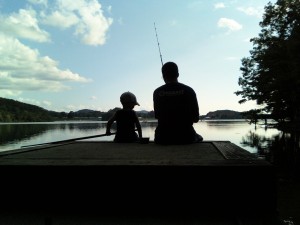




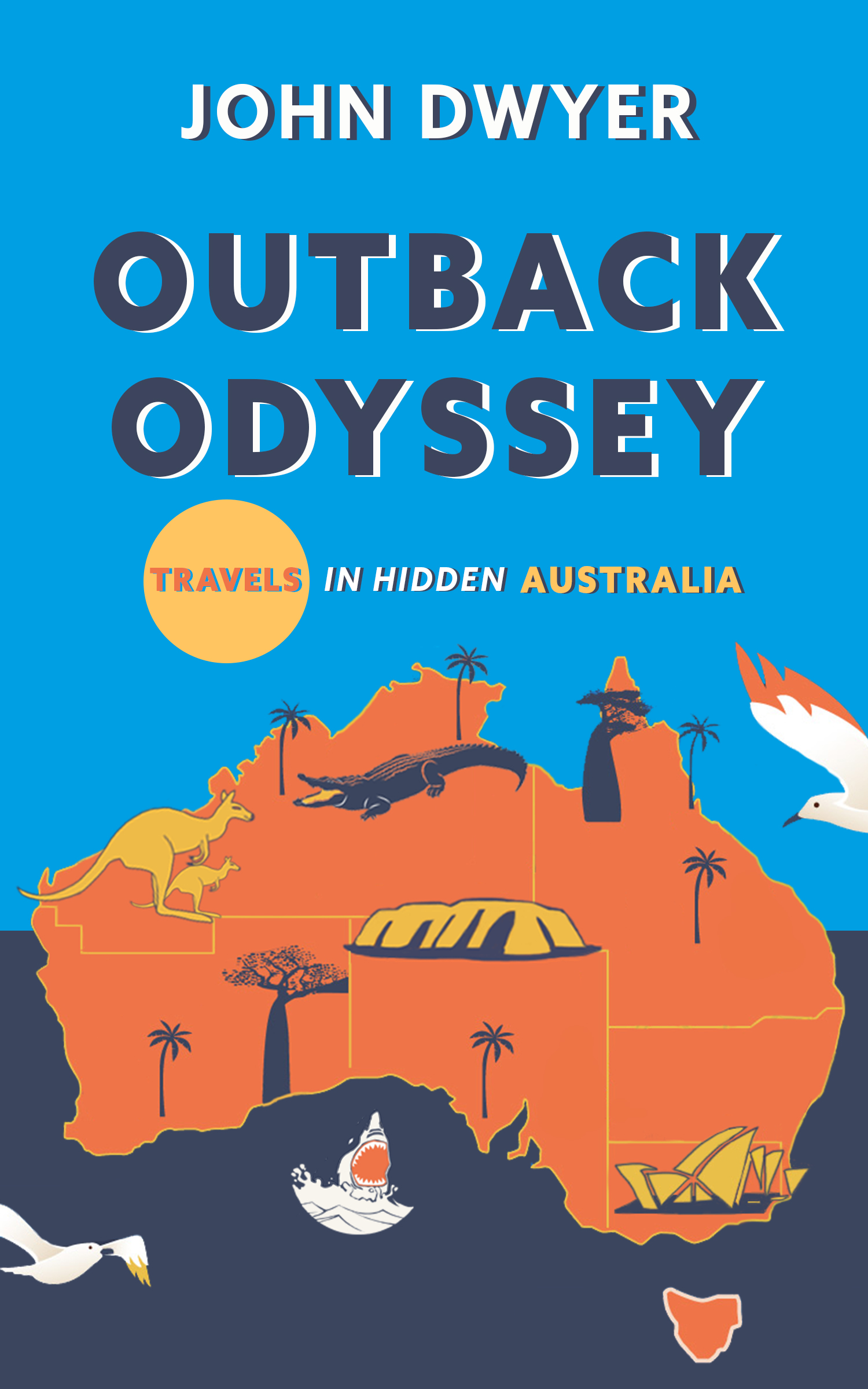
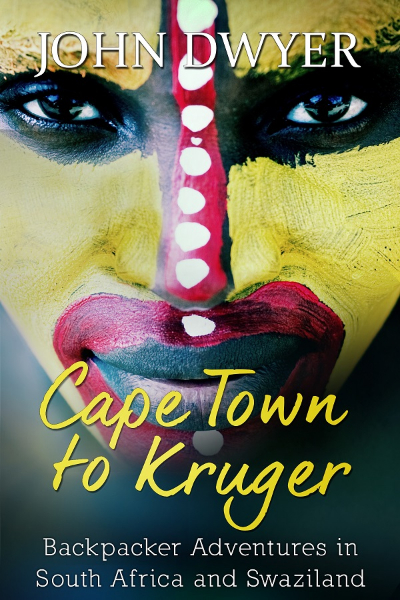
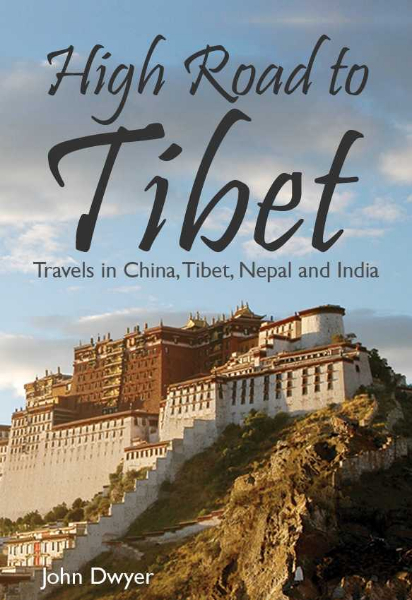
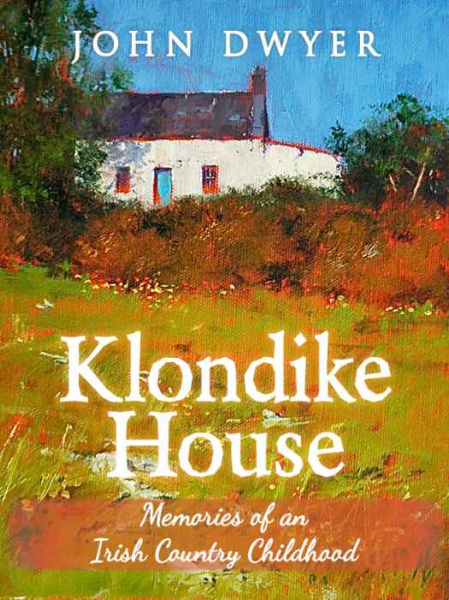
How do I obtain copy of Fishing in Beara..Childhood memories?
Hi Marie,
You can purchase a copy from Amazon by going to this link https://www.amazon.co.uk/dp/1466214066/ – it’s available in both paperback and kindle.
Hope you enjoy reading it and be sure to come back and let me know.
John
I just finished reading Klondike House – a wonderfully evocative picture of rural Beara life. Although childhood in the 70s and 80s is a bit later than the last of my direct ancestors lived there, it still helps me to picture more of the life, which my grandmother – from Ardgroom – never forgot.
I wonder if you might have known her brother, John McCarthy, of Ardgroom/Cappacluherane who died in the 1990s? Their mother Mary was a cousin of Kitty O’Sullivan (Paddy’s wife)… So many of my ancestors lived in places mentioned in your book (Inches/Cealinches, Eyeries, Clash/Kilmacowen, Droumbeg…). I had planned to visit last year. Now, still in lockdown, your book helped conjure a bit of a mental, virtual journey.
Thank you.
Hi Lesley,
Thanks for getting in touch and for your very kind comments. I don’t know the family but I’ll ask my Mum if she knows them, I’m sure she will.
I wrote the book to save those memories so my own children can read about them. I’m thinking of adding some more stories and memories so sign up for my newsletter to stay tuned for any updates.
Where are you based Lesley?
Take care and do stay in touch,
John
Thank you, I will sign up. I’m based in Devon – but grew up in Florida – sub-tropical 1970s suburbia is a world away from Beara!
with best wishes
Lesley
having trouble signing up for the newsletter – I enter email address and name – and then it tells me in red to ENTER A VALUE. … not sure what/how?
Hmmmm…can you try using this link Lesley and fill in all 3 fields with your first and last name and email. Let me know if there’s still any issue. https://www.johndwyerbooks.com/signup/newsletter/
Hi John,
I’m the photographer for the photo above in your post here. That’s my son-in-law and grandson. So father and son.
I posted this on a blog years ago and it just kind of took off from there. I like seeing it in use, so no worries.
All the best in your writing adventures!
Hi Eric,
Thanks so much for stopping by. That’s amazing! I assumed it was some random stock image but it fit my piece perfectly. I do apologise as I should have sought the owner and got permission to use that photo.
How’s your son-in-law and grandson doing? How long ago was that photo taken?
Best Wishes,
John